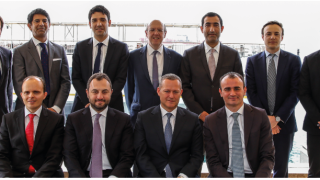Turkey
-
Turkey's president, Recep Tayyip Erdogan, declared a three month state of emergency late on Wednesday only a few hours after Standard & Poor’s smacked the country with a downgrade.
-
Standard & Poor’s has downgraded Turkey’s foreign currency debt rating to BB from BB+, putting the country at the same level as Bahrain and Croatia — and two notches below South Africa.
-
Moody’s has put Turkey on review for downgrade after the attempted coup in Turkey at the weekend, prompting fears that if such action is taken some investment grade bond funds will be unable to hold the country’s debt.
-
While Sekerbank postponed the roadshow for a tier two bond over the weekend, the borrower has succeeded with a $130m loan — although one lender asked for more time before signing, according to a lead banker.
-
Yapi Kredi has cancelled the $550m 4.5% 2023 bond it sold on July 12 rather than settle it on Tuesday as scheduled. The bank said it will return to the bond market in September at the earliest.
-
The one and only euro benchmark Turkish covered bond issued by Vakifbank widened slightly on Monday but then more sharply on Wednesday following the attempted coup over the weekend. Covered bond investors said the episode would provide a good test case for emerging market covered bonds.
-
The one and only euro benchmark Turkish covered bond issued by Vakifbank widened slightly on Monday following the attempted coup over the weekend.
-
Turkish Sekerbank has postponed the roadshow for its tier two bond as Turkish bonds opened Monday around 15bp-20bp wider after the failed coup over the weekend.
-
Banks involved in two live loans for Turkish financial institutions are so far unruffled by Friday's attempted coup against president, Recep Erdogan. However, lenders will likely review their appetite over the longer term for exposure to the country.
-
-
Turkey's Sekerbank has mandated six banks for a Reg S only subordinated tier two Basel III compliant bond.
-
Competition is becoming much fiercer in the Turkish banking sector. After years of rampant loan growth in many markets, banks will have to fight much harder to find new customers and bigger margins in the future.






